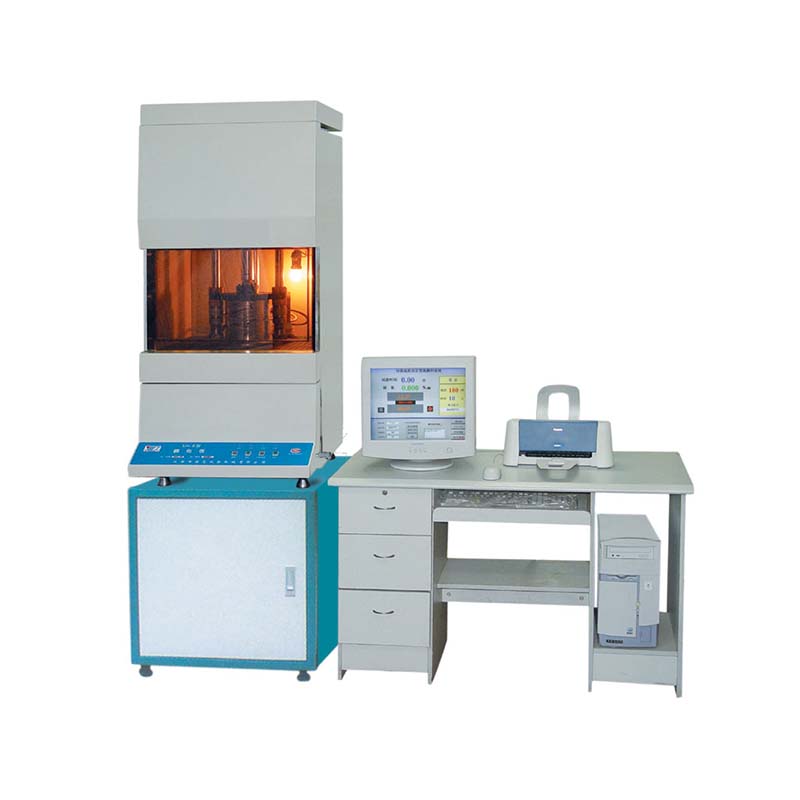electronic universal tensile testing machine
The Electronic Universal Tensile Testing Machine An Overview
In the realm of material testing, the electronic universal tensile testing machine (UTM) stands as a vital instrument used to assess the mechanical properties of materials. This machine plays a significant role in various industries, such as aerospace, automotive, construction, and manufacturing, where understanding the strength and ductility of materials is crucial.
What is a Universal Tensile Testing Machine?
A universal tensile testing machine is designed to perform a variety of mechanical tests on materials, including tension, compression, bending, and shear tests. The electronic version utilizes advanced technology to accurately measure the properties of materials, ensuring reliability in the results.
The primary components of a UTM include a load frame, control system, load cells, and grips. The load frame provides the structure necessary to apply force, while the load cells measure the actual force being applied. The control system precisely regulates the testing process and records data for analysis. Grips hold the sample material securely during the test, preventing slippage or failure at the grip points.
Working Principle
The working principle of an electronic universal tensile testing machine is relatively straightforward yet precise. The sample material is placed between the grips, and the machine applies a controlled tensile force. As the force is increased, the strain on the material is measured until failure occurs. The machine records parameters such as load and elongation, which are used to calculate key mechanical properties, including yield strength, tensile strength, elongation, and modulus of elasticity.
One of the distinguishing features of electronic UTMs is their ability to provide real-time data analysis. The machine is equipped with software that allows operators to monitor the testing process and visualize data on a computer screen. This integration of technology enhances both accuracy and efficiency, allowing for immediate assessment of the material's performance.
Applications
electronic universal tensile testing machine

Electronic universal tensile testing machines are versatile and widely used across different fields. In the aerospace sector, for example, they help ensure that materials can withstand the high stresses experienced during flight. In the automotive industry, UTMs are used to test metals and polymers to ensure safety and performance standards are met in vehicle construction. Similarly, the construction industry relies on tensile testing machines to assess the properties of building materials such as concrete and steel.
Moreover, research and development laboratories also utilize these machines for material characterization and to innovate new materials with enhanced properties. Academic institutions incorporate UTMs in engineering curricula, providing students hands-on experience with material testing methodologies.
Advantages of Electronic Universal Tensile Testing Machines
The adoption of electronic technology in universal tensile testing machines yields numerous advantages. One major benefit is increased accuracy and repeatability of test results, minimizing human error associated with manual data recording. The ability to program testing parameters and automatically adjust the speed of the test enhances reliability.
Additionally, modern electronic UTMs come equipped with advanced software that offers extensive data analysis capabilities. Users can generate comprehensive reports, conduct statistical analysis, and easily share results with colleagues. This digital integration significantly streamlines the testing process and facilitates communication in research and quality control.
Another advantage is the flexibility of testing different materials. Electronic UTMs can accommodate a wide range of specimen sizes and types, making them suitable for various industries. Their adaptability is essential, especially in environments where materials undergo constant evolution and innovation.
Conclusion
The electronic universal tensile testing machine is an indispensable tool in material science, offering detailed insights into the mechanical properties of materials. By leveraging electronic technology, these machines provide unparalleled accuracy, efficiency, and versatility. As industries continue to evolve and require more sophisticated materials, the role of UTMs will only become more critical in ensuring safety, performance, and innovation. Emphasizing the importance of robust testing methodologies, the electronic UTM stands out as a fundamental contributor to advancements in material engineering and quality assurance.
-
Why the Conductor Resistance Constant Temperature Measurement Machine Redefines Precision
NewsJun.20,2025
-
Reliable Testing Starts Here: Why the High Insulation Resistance Measuring Instrument Is a Must-Have
NewsJun.20,2025
-
Flexible Cable Flexing Test Equipment: The Precision Standard for Cable Durability and Performance Testing
NewsJun.20,2025
-
Digital Measurement Projector: Precision Visualization for Modern Manufacturing
NewsJun.20,2025
-
Computer Control Electronic Tensile Tester: Precision and Power for the Modern Metal Industry
NewsJun.20,2025
-
Cable Spark Tester: Your Ultimate Insulation Assurance for Wire and Cable Testing
NewsJun.20,2025
 Copyright © 2025 Hebei Fangyuan Instrument & Equipment Co.,Ltd. All Rights Reserved. Sitemap | Privacy Policy
Copyright © 2025 Hebei Fangyuan Instrument & Equipment Co.,Ltd. All Rights Reserved. Sitemap | Privacy Policy
